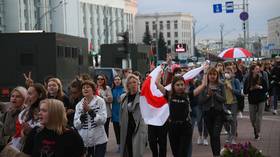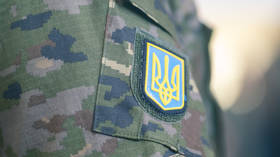In new crackdown, Belarus revokes accreditation for foreign media journalists, deports four Russian citizens

The Belarusian foreign ministry has withdrawn accreditation from journalists from certain foreign media, a decision which the country's law enforcement agencies have justified on the basis of 'countering extremism.'
Journalists from Western media organizations, such as Reuters and Associated Press, along with state media outlets AFP, BBC, Deutsche Welle and RFE/RL, have been stripped of their right to report, meaning that they could be arrested if caught performing their duties. The majority of these reporters are Belarusian citizens.
In response, British state broadcaster BBC called the move a "stifling of independent journalism," which it condemned "in the strongest possible terms."
Statement on #BBC journalists in #Belaruspic.twitter.com/xUwMaWXFDd
— BBC News Press Team (@BBCNewsPR) August 29, 2020
Among the reporters working for foreign media outlets were four Russians, according to the press secretary of the Russian Embassy in Minsk, Alexei Maskalev, who clarified that they worked for news agency Associated Press and the German TV channel ARDl. Maskalev said that the Embassy would help ensure the four Russians leave the country. On Thursday, Belarusian police detained multiple journalists covering demonstrations in the country's capital city. Those working for Russian media outlets were released after their documents were checked, Maskalev said.
The line from Minsk is that the journalists, from @tvrain, were arrested because they didn’t have accreditation. Earlier, a crew from US state-run @RFERL was also arrested and then deported. https://t.co/cEVBC6058j
— Bryan MacDonald (@27khv) August 9, 2020
Belarus' crackdown on the media began on August 9, the day of the presidential election. Following the results, which declared incumbent Alexander Lukashenko the winner with over 80 percent of the vote, thousands of citizens took to the streets to protest.
Like this story? Share it with a friend!















